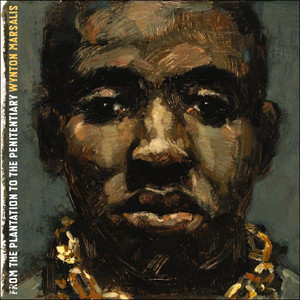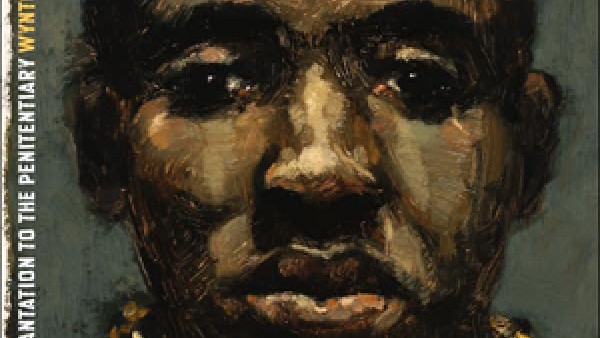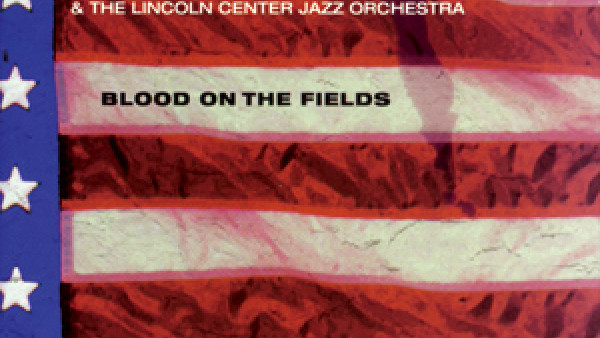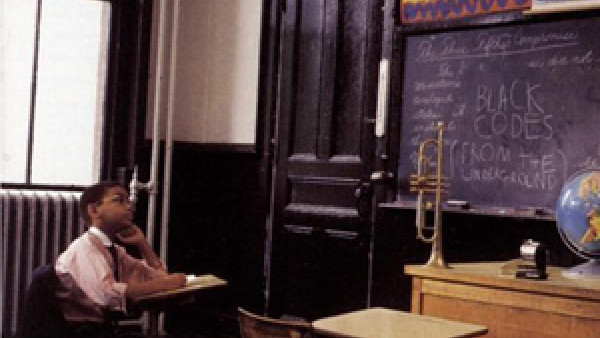Marsalis shoots straight from the lip
NEW YORK–Wynton Marsalis is at a loss for words.
It’s only a few seconds, but silence is not what you expect from jazz’s outspoken and charismatic ambassador, better known for what he says than what he plays.
Nor was it his typical mien during the Star’s brief afternoon backstage visit to the trumpeter-composer’s dressing room at Jazz at Lincoln Center’s Manhattan headquarters.
Wearing jeans, sneakers and a New Orleans sweatshirt, horn to his lips, he was warming up for sound check for that night’s performance with Willie Nelson.
He responded to queries about his role as artistic director of the renowned arts organization and leader of its orchestra (making its Massey Hall debut with a sold-out show on Wednesday) in a subdued drone, but was fired up when the conversation turned to his controversial new album.
Now that the topic is Hurricane Katrina, the 45-year-old Louisiana native just shakes his head.
He has said that watching the devastation unfold on TV from his Manhattan apartment in 2005 was “like somebody violated your momma.”
Marsalis, who spearheaded several fundraising shows in the aftermath, is frustrated by the stalled recovery efforts.
“We did a whole plan for the cultural revival of (New Orleans), but I don’t know what the mayor and them are doing …” he says finally.
“I can’t effect change, except in terms of morale, which I’m always willing to do: play concerts, talk about the situation, raise attention. But in terms of actually getting houses built, or getting laws changed, or running organizations that will get people who are displaced the type of funding or support they need …”
Helplessness is an unfamiliar position for the former child prodigy who made his recording debut in 1980.
Marsalis is an award-winning jazz and classical player with more than 50 albums to his name, but he’s primarily acclaimed as an arts advocate and educator, most notably as frontman for Jazz at Lincoln Center, which began as three concerts in 1987.
Today, it’s the world’s largest non-profit organization dedicated to jazz, with hundreds of annual events, including educational programs for infants to adults, concerts, composer commissions and tours.
But Marsalis’s leadership of the institution has been criticized as much as it has been celebrated.
In the early years, the composition and repertoire of the Center’s popular 15-person orchestra saw him labelled ageist and anti-white.
“The band is selected by merit like a sporting team and it’s very difficult to get in,” he says about why the group has never had a female member.
“From a traditional standpoint, we don’t have the same roll call of great women in our music that we have men. We’re encouraged by the fact that we have a lot of girls who play in the Essentially Ellington (high school) program,” he pointed out.
“We don’t have a policy like we won’t hire a woman, or an older person; there’s been various charges alleged at different times in the history of the organization.”
“Jazz comes from such a heritage of combating discrimination – musicians of course were discriminated against because of race – so we certainly don’t want to be perceived as a part of that, but not at the sacrifice of the quality of what we’re doing.”
However, he defiantly adds, “I’m not selecting my band based on who complains about who’s not in the band.”
That’s the unapologetic attitude that fuels the detractors, and the musician shrugs it off.
“That’s part of being in a democratic society; I like spirited debating.”
He’s triggered that anew with last week’s release of From the Plantation to the Penitentiary.
Recorded with his quintet and featuring a young female singer, the disc deals with socio-political issues, such as misogyny and homelessness. It has received mixed reviews.
Though similar in stance to 1985’s Black Codes and 1997’s Pulitzer Prize-winning Blood on the Fields, this record has more pointed vocals, including a spoken-word performance by Marsalis.
On “Where Y’All At?” he rhymes: ``The left and the right got the country sinkin’./ Knock-ed the scales from Justice hand and set her eyes a-blinkin’.’‘
Critics are divided about whether his lyrics are too preachy, or not strident enough; and if they enhance the music or detract from it.
Either way, the barrage of publicity has given Marsalis a fresh opportunity to speak his mind. And besides the post-Katrina bureaucratic bumbling, his most frequent target du jour is rap music.
“Under no circumstances have I ever been a party to any of that or liked it. One thing I’m most proud of is being on the record about that,” he said.
“I love black people too much to sit back and say, `Yeah, we’re niggers,’ or `Yeah, you should kill another brother,’ or `You’re real ‘cause you went to jail,’ or `Our women are bitches.’
“That’s why we are constantly trying to be a part of educating our youth and uplifting our culture.”
The words rush out now. With a distinctive bite. And louder. But it’s time to go. Willie Nelson awaits.
What do he and the country music icon have on tap? Marsalis smiles as he relaxes into his chair and reaches for his horn.
“We’re going to be doing what we always do: swinging and playing the blues.”
By: Ashante Infantry
Source: Toronto Start




